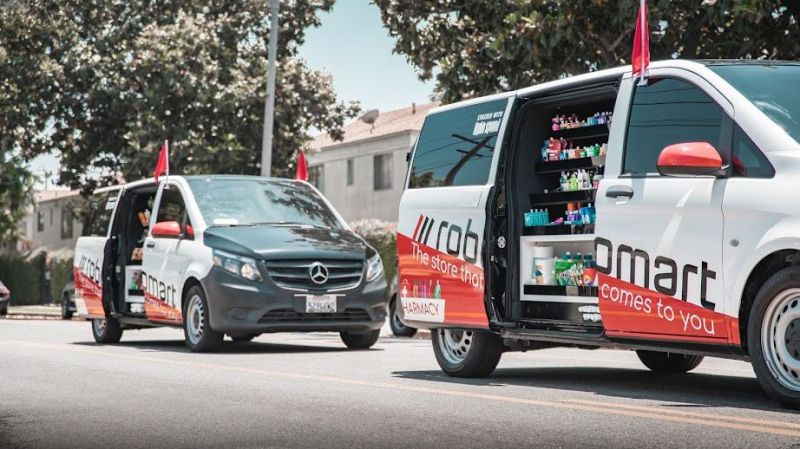
For as popular as they became during the COVID-19 lockdowns, grocery delivery services like InstaCart rely on a basic assumption to work: that customers know exactly what they want when they order. Once that hurdle is overcome, the transaction is simple — the driver accepts the job, drives to the store to pick up the order, and takes it to the customer. It requires the use of a fair amount of technology to coordinate everything, but by and large it works, and customers are generally willing to pay for the convenience.
But what if you could cut out that step where the driver goes to pick up your order? What if instead of paying someone to pick and pack your order and bring it to your front step, you just ordered up the whole store instead? That’s the idea behind Robomart, which seeks to deploy a fleet of mobile stores for when the convenience store isn’t quite convenient enough. And the way the company is choosing to roll out its service, not to mention the business model itself, may hold key lessons for other delivery automation platforms.
Mobile Munchies
From the look of current prototypes, Robomart will be hawking their wares from a fleet of minivans. The user experience is similar to InstaCart or even a prepared meal service such as Uber Eats, at least as far as using an app to create an order. But instead of making specific selections, Robomart just sends a van that’s already stocked with a variety of items. Selection will vary; some vans will stock standard convenience store munchies, while others will carry personal care and hygiene items such as would be found at the corner drug store. Once the van arrives, the customer will unlock it using the Robomart app, which opens the side door of the van to reveal the attractive and enticing array of goods. Customer selections are logged by RFID sensors, the account is billed, and the van moves on to its next stop.
During beta tests in West Hollywood during mid-2021, the company reports that the service proved popular, with the average user creating 2.3 orders per week. But the really stunning figure is the turnaround time — Robomart claims each truck averaged only nine minutes per order, from order creation to closeout. The ability to service almost six customers per hour per truck is pretty amazing, and blows away the order time of traditional delivery services, which often have protracted idle time for the driver while food is cooked or an order is picked.
Almost Automated
The astute reader will note, however, that Robomart’s vehicles are noticeably lacking in the typical appurtenances of self-driving vehicles — no LiDAR domes, no cameras other than those needed for inventory control. That’s because the vehicles aren’t autonomous — yet. While CEO and founder Ali Ahmed’s original vision for Robomart was a fleet of self-driving vehicles, and indeed the first prototype van was autonomous, the regulatory structure to support fully autonomous delivery in the company’s target markets just wasn’t in place. So rather than wait for it to catch up, the company wisely chose to test the “store to your door” concept first. It’s arguably the true innovation here anyway, and seeing if the market will reward the idea is probably more important than the gee-whiz factor of having the van be self-driving. They do their best to conceal that fact, though — the van’s windows are heavily tinted, and the driver remains in the cockpit and doesn’t interact with customers during stops. Sounds like a great gig for introverts.
From an “Automate the Freight” perspective, we’ve got mixed feelings about this idea. There’s no denying that there’s a market for a service like this — nobody ever went broke catering to people’s laziness, after all. Add in the fact that you’re literally sending a junk-food-filled van to someone’s house, where there’s nobody to judge you for carrying an armload of Twinkies to the register, and it’s likely that sales will be brisk.
Assuming future versions of Robomart will go beyond the current on-demand convenience store and drug store models — there’s apparently an ice cream delivery van now, but that’s hardly a departure from the current offerings — this could really catch on. Just imagine a hacker’s version of Robomart, chock full of hardware, tools, and other components needed to advance a project on a Sunday afternoon. Most of us would likely be willing to pay a premium for a service like that, if it keeps us from interrupting the flow of work with a trip to the hardware store.
[Photos: Robomart]
0 Commentaires